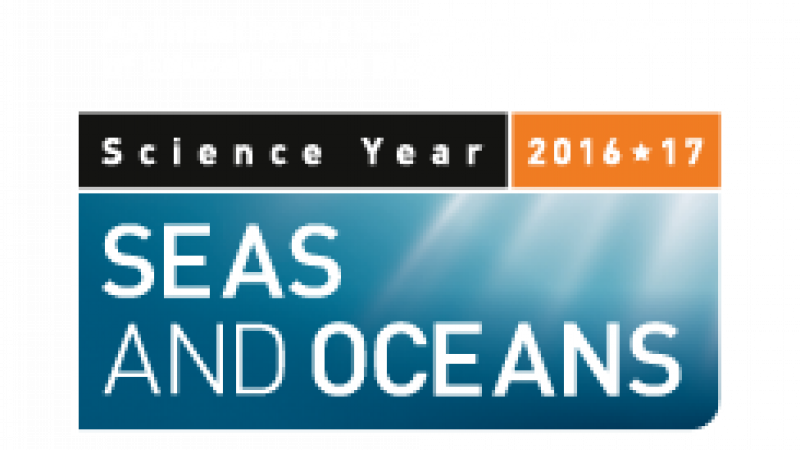Call for Participation – Join Us and Dive into the Science Year “Seas and Oceans”

Together with our partner Science Year 2016*17, re:publica 2017 will host the new “sub:marine” track. The intersection of digital culture, technology and oceanic habitats is surprisingly large, so join our Call for Participation for “sub:marine”!
With your help we'll get to the bottom of some deep questions: is the Internet a sea creature? Will oceans be a habitat for humans of the future? Can ocean research technologies combat climate change? What are the modern tales of the high sea? Although it can be dramatic in its separation of the continents, an ocean is, at its heart, a connecting element of our planet.
The Aqua Lab
Alongside the “sub:marine” track, re:publica 2017 will feature the Aqua Lab – full steam ahead for sea and ocean research. The Aqua Lab will make course for climate change research, possible habitats in the oceans, sustainable use of marine resources and technologies for deep-sea research, as well as Open Data and Internet of Thing of the Seas. What are the impacts of the privatisation of undersea cables? Which technologies are used for exploring the oceans' depths and how is this research made to be engaging? How will the biodiversity of the seas develop in future? What are sea unicorns and do dolphins make the best spies? These two re:publica speakers say: yes.
In light of the urgent problems facing our planets seas and oceans, we'll also ask how oceanic research can be more engagingly communicated and what roles (digital) art projects could play in this. We want to discuss utopian potentials as well as the current state of our seas and oceans.
Oceans: A Source of Ideas and Inspiration
The earthly depths of our planet have always been a source of inspiration for future visions. Our oceans, 3800 meters deep on average and covering more than 70 percent of the earth's surface, were the stuff of visions and ideas even back in ancient times. Lost cities, sea creatures, adventures to the bottom of the ocean are core to our social narratives. The idea of living under water has survived to this day – as a utopian alternative or a dystopian last resort.
What is portrayed in literature, film and pop-culture as the basis of great stories is, when it comes to oceanic research, the potential for a better future: biomedical agents, nearly unlimited energy resources and innovative foodstuffs from the sea.
The utopia, however, is dimmed by the sobering present condition of our oceans and seas. Climate change has warmed and acidified our planets oceans which results in coral bleaching and the unnatural imbalance of species. Overfishing, gas and oil extraction in ecologically fragile areas, and pollution through plastics and other waste has seriously affected nearly all bodies of water.
Call for Participation: "sub:marine"
The balance of most aquatic ecosystems is already heavily impacted. We want to hear from all you scientists and researchers: how do you deal with this challenge? Want to add to the discussion on “Seas and Oceans”? Dream, engage, entertain – share your ideas and projects with!
Our re:publica 2017 Call for Participation deadline is staggered in three phases: 4 December 2016, 8 January 2017 and finally 31 January 2017. The faster you submit your idea, the faster we assess your submission!
Find out more here, read more on "sub:marine" here.
Can you think of someone we should definitely invite, an expert in this field, a great speaker, or an extraordinary project that we shouldn't miss? Suggest speakers by sending your suggestions to programme (at) re-publica (dot) de.
Science Year 2016*17 – Seas and Oceans

Oceanic research is the theme of the Science Year 2016*17. Seas and oceans cover nearly 70 percent of our planet's surface and are its climate engines, food sources, economic centres – they are habitats for countless plant and animal life. Scientists have been researching the oceans for a long time, yet much of it remains elusive and still undiscovered. The Science Year 2016*17 focuses on exploring seas and oceans, their protection, and their sustainable use. The Science Years are an initiative by the German Federal Ministry of Education and Research in cooperation with Wissenschaft im Dialog (Science in Dialogue, WiD). They are the central resource for scientific communication, bringing research and the wider public together, and facilitate dialogue between scientific research and society. The Science Year 2016*17 enjoys expert support by the German Marine Research Consortium (KDM).